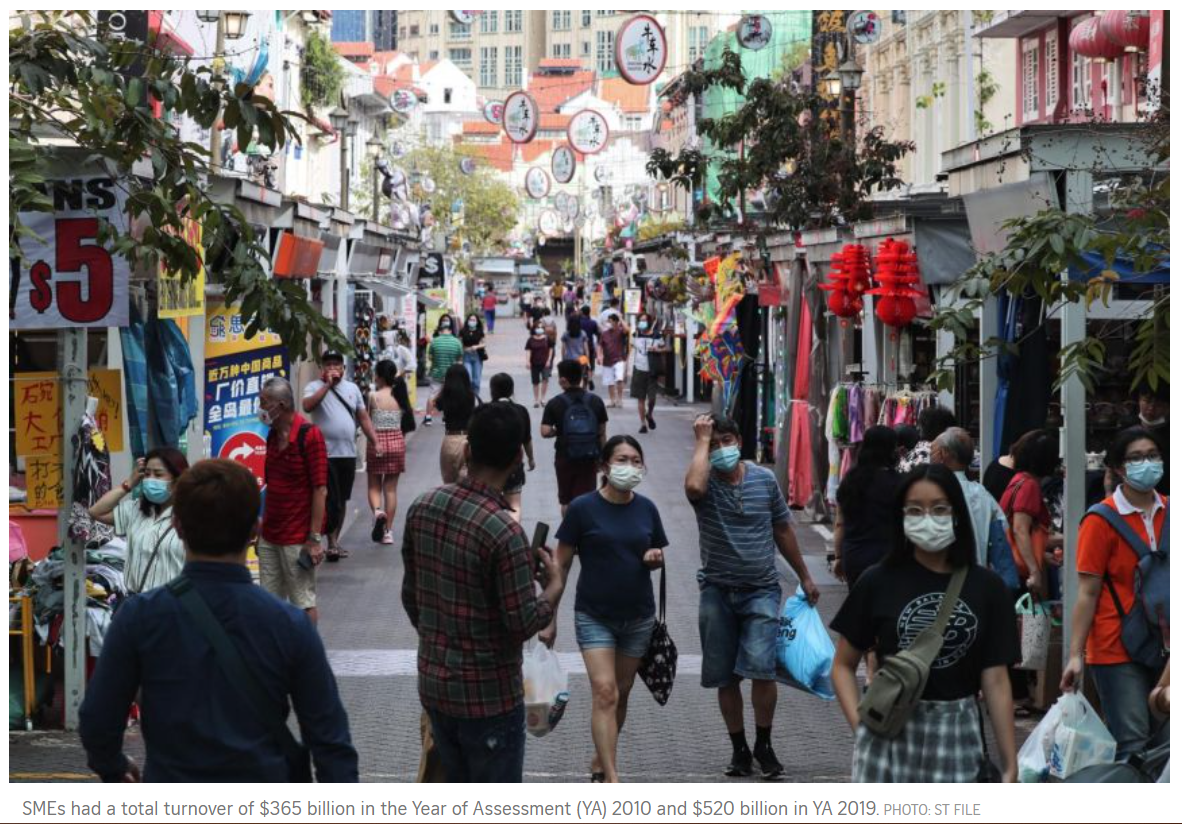Singapore SMEs paid lower average effective tax rates than non-SMEs for past decade
SINGAPORE – Small and medium-sized enterprises (SMEs) paid lower average effective tax rates than non-SMEs over the past decade, according to figures disclosed by Finance Minister Lawrence Wong on Monday (July 5).
The average effective tax rates – corporate tax divided by chargeable income – for all SMEs stood at 3.4 per cent for the Year of Assessment (YA) 2010 and 2.8 per cent for YA 2019.
Meanwhile, non-SMEs’ average effective tax rates have ranged from about 8 per cent to 10 per cent for the same period, said Mr Wong in a written response to a parliamentary question about the breakdown of corporate income tax collections from SMEs and non-SMEs.
Workers’ Party MP Louis Chua (Sengkang GRC) had asked Mr Wong about assessed financial figures such as corporate income tax paid and the average effective tax rate over the past decade.
He also asked for a breakdown of these numbers by SMEs and non-SMEs; tax resident and non-tax resident companies; and Singapore-incorporated and foreign companies.
SMEs, or companies with turnover of up to $100 million, had a total turnover of $365 billion in YA 2010 and $520 billion in YA 2019.
Their profits before tax rose from $31 billion for YA 2010 to $44 billion for YA 2019, and they paid corporate income tax of $3.8 billion for YA2010 and $4.8 billion for YA 2019.
Meanwhile, non-SMEs’ total turnover stood at $1.7 trillion in YA 2010 and $4.1 trillion in YA 2019.
Their profits before tax increased from $97 billion for YA 2010 to $459 billion for YA 2019, while the total corporate income tax they paid rose from $6.4 billion for YA 2010 to $11.5 billion for YA 2019.
In a separate question, Mr Chua also asked for the same financial figures for foreign companies whose profit margins are above 10 per cent in the most recent year of assessment, as well as the number of such foreign companies operating here.
Mr Wong said in response that the total revenue of companies whose profit margins are above 10 per cent was $802 billion, based on Inland Revenue Authority of Singapore (Iras) data available for YA 2019.
Their profit before tax was $542 billion and they paid corporate income tax of $11 billion, with an effective tax rate of 4.6 per cent for YA 2019.
There were a total of around 52,000 such companies with profit margins above 10 per cent that year.
Leader of the Opposition Pritam Singh asked Mr Wong how much corporate tax relief and rebates have been granted to companies from 2011 to last year on a yearly basis – and what amount of these went to foreign companies to entice them to set up branches or subsidiaries in Singapore.
Mr Wong said the Government generally does not differentiate corporate tax treatment based on the place of incorporation, the tax residency of the company or the nationality of the business owner, an approach which is also in line with the reciprocal obligation under tax treaties for non-discrimination.
“As Iras does not track corporate taxpayers based on their ownership, we are unable to provide data for foreign-owned companies,” he said.
The Government also does not have data on the total amount of corporate tax breaks that companies enjoy as it generally allows taxpayers to claim deductions and allowance in their tax returns without prior approval from Iras to ease taxpayers’ compliance burden.
Iras then audits the taxpayers on a risk-based approach.
To facilitate periodic policy review, taxpayers are asked to declare in their tax returns only a subset of tax deductions and allowances such as the writing-down allowances for the cost of acquiring intellectual property rights.
Based on this subset, the total annual amount of such tax deductions and tax allowances ranged from $128 billion in YA 2011 to $218 billion in YA 2019.
Corporate income tax rebates were granted from YA 2013 to YA 2019, and companies’ yearly amount of corporate tax savings ranged from $200 million to $580 million.
The Government sometimes provides corporate income tax rebates – typically given as a percentage of tax payable, subject to a cap – to ease companies’ cash flow, said Mr Wong.
“This cap ensures that the rebate benefits especially tax-paying SMEs,” he noted.
Source: https://www.straitstimes.com/singapore/politics/spore-smes-paid-lower-average-effective-tax-rates-than-non-smes-for-past-decade


 Thailand
Thailand




